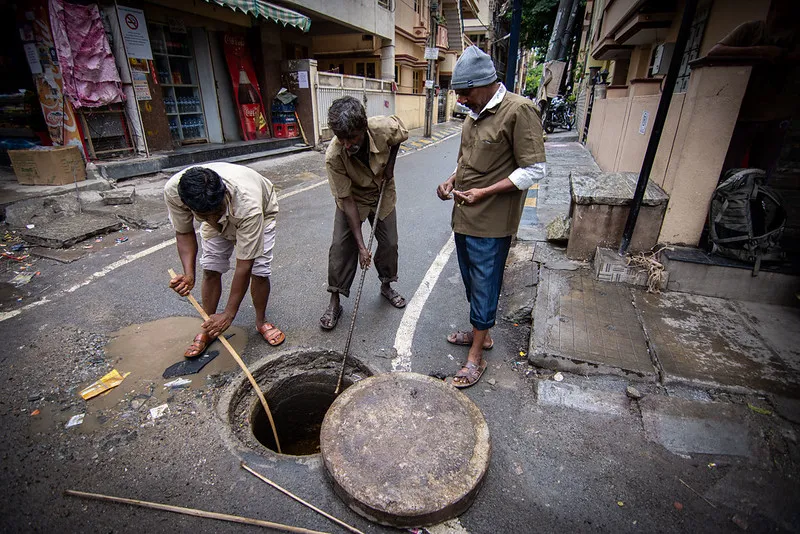Bengaluru Sweet Manufacturing Company Faces Backlash After Tragic Deaths of Two Workers
A well-known sweet manufacturing company in Bengaluru is facing serious allegations following the tragic deaths of two young men who were reportedly engaged in manual scavenging at its factory. The incident occurred on Thursday evening at the Asha Sweet Centre’s facility in the Sompura Industrial Area near Dobbaspet.
The deceased, identified as Lingaraju and Naveen, were both 26 years old and came from Tumakuru and Anantapur, respectively. The circumstances surrounding their deaths have raised significant concerns about worker safety and labor practices within the company.
In response to the incident, the Bengaluru police have detained two individuals: Santhosh, the site supervisor, and Ramesh, the owner of JRR Aqua Pvt Ltd., a subcontractor tasked with managing the factory’s sewage treatment plant. Authorities are currently seeking Mayur, the owner of Asha Sweet Centre, who has also been implicated in the case as the second accused.
Legal action has been initiated against the individuals under Section 105 of the Bharatiya Nyaya Sanhita (BNS), which pertains to culpable homicide not amounting to murder, in conjunction with the Prohibition of Employment as Manual Scavengers and their Rehabilitation Act of 2013. This legislation explicitly prohibits the employment of individuals in manual scavenging, recognizing it as a hazardous occupation that compromises worker dignity and safety.
Initial investigations suggest that Lingaraju and Naveen were performing their duties for JRR Aqua Pvt Ltd when they entered the sewage treatment plant. It is feared that they were overwhelmed by toxic fumes and chemicals, leading to their tragic deaths shortly after they began working.
The Prohibition of Employment as Manual Scavengers and their Rehabilitation Act is a crucial legal framework designed to protect sanitation workers from exploitation and hazardous working conditions. Violators of this act face severe penalties, including imprisonment for up to two years and fines of up to ₹100,000.
Adding context to this tragic event, a report from the Union Ministry of Social Justice and Empowerment indicated that approximately 453 individuals have died while cleaning sewers and septic tanks since 2014, despite the claim that 732 of India’s 766 districts have declared themselves free from manual scavenging. Union Minister of State for Social Justice and Empowerment, Ramdas Athawale, had previously emphasized the progress made by various states in a written response in the Lok Sabha, highlighting the need for continued vigilance and improvement in worker safety standards.
The deaths of Lingaraju and Naveen serve as a stark reminder of the persistent issues surrounding manual scavenging in India. As the investigation unfolds, there is a growing call for accountability and reform in labor practices to ensure that tragedies like this do not occur again. The incident highlights the urgent need for stringent enforcement of labor laws and comprehensive measures to protect the rights and safety of sanitation workers across the country.

COMMENTS (0)
Sign in to join the conversation
LOGIN TO COMMENT